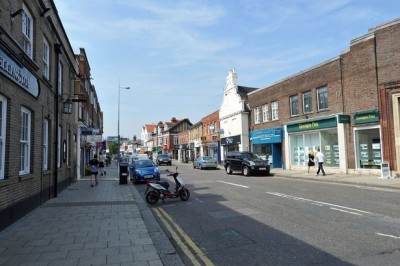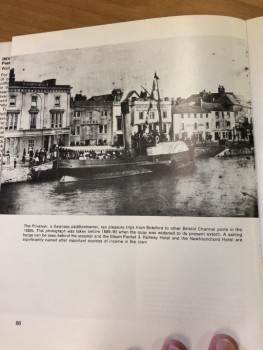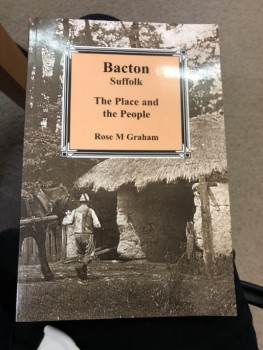Hello and welcome to my penultimate blog, working at the Mills Archive Trust, where I write about a myriad of intriguing aspects of working at the Archive. So what is on the menu for this week’s blog? Well, I think it would be fascinating to explore the variety of books we have in the library pertaining to social history. But before we delve deeper into that, you may ask: what is social history? Well, according to Mr/Mrs Google, social history is a field of study looking at the lived experiences of people in the past. This is quite a broad definition of social history, but in effect, social history is a facet of history which concentrates on the social, economic, and cultural institutions of a people.

So why has the broad topic of social history piqued my interest this week? Well, as you know, the library is home to hundreds of unusual books. However, through continuing to catalogue these books, I have stumbled upon a few more gems which I would like to discuss with you today. So for today’s blog, I have selected three social history books, to show just how interesting these social history books really are.
1. Walton

To start with, we will be looking at the book: Walton, a mainly pictorial book documenting (you guessed it) Walton, a small town in Surrey. This book documents the town from a bygone era, showing the reader different parts of the town with descriptive captions. The beauty of social history books like this is that they contain such a wealth of information. As a historian you could discuss so many different aspects: from the clothes people are wearing to the modes of transport used in the town.
Take for instance this photograph of the Walton high street in 1877, and the photograph of it in 2016. Just look at the stark difference nearly 150 years makes. I think the main differences (beside the technological advancements; the road, cars, bikes, etc.) between the two is the presentation of the stores on the street. The stores in 1877 were quite subtle, they didn’t have their brand name emblazoned in big, bold colourful letters- unlike in 2016. This is simply because there was less competition in 1877, the Walton market was monopolised under a general store, a bakery and a butcher. However in 2016 (due to the fruits of a capitalist nation) there is more competition, thus you have to stand out if you want to entice people into your store in order to gain their custom, whereas the reality was very different in 1877 when customers had few alternatives.


2. Devon at Work

Now, to discuss the next social history book which is about Devon and its industrial past. Much like the previous book, this is a mainly pictorial piece- documenting the old industries of Devon. The book offers an interesting insight into a different time when British industry was thriving and people were prompted to work in manual labour industries such as the steel industry, etc.

When looking at this book, I think it is worth contrasting this with today’s society, in which many people work in offices and are sat down all day. Whereas the majority of ‘yesteryear’s’ society was required to work in manual labour industries: fishing, mining and quarrying, etc. This book (and many other social history books) give a visual representation of change, making it such an illuminating piece for historians like myself who are interested in the ways in which our society has shifted over the centuries. One thing that I found particularly interesting was the paddle steamer. The Privateer, a Swansea paddle steamer, ran pleasure trips from Bideford to other Bristol Channel ports in the 1880s. So it took tourists on day trips to different Bristol Channel ports, offering a great source of income for the town. If you look at the design of the boat, it is the epitome of Victorian design. In fact, I don’t think something could look more Victorian if it tried. It looks futuristic for its time, and was no doubt a draw for tourists in the region. This again, goes to show that you can find the most unexpected things in social history books, making them so very interesting, as you never know what you may find just flicking through any book.

3. Bacton Suffolk

Finally, the last social history book which we will be looking at in this piece will be this book on Bacton, a small town in Suffolk. This book concentrates mainly on the people of Bacton and its distinguishing features dating back all the way to Domesday. The book contains photographs, however it is mainly text based and outlines a population change in Bacton too. The book paints a colourful past of an otherwise unassuming Suffolk village. This for me is another beauty of social history books, as it preserves niche aspects of history which would have otherwise been lost to time and moves them into the fore of discussion.
Take for instance, the part of the book dedicated to the town’s quoits team- as you can see from the pictures below. Now before today, I didn’t have a clue what quoits was, but now I know that Bacton were the winners of the Quoits Challenge Cup in 1921. Social history books contain the information you didn’t know you needed! This is what makes social history books so special, you can learn things you would never had learned without the book- making them such a rich area for research.

So, to answer the overarching question of the piece: what’s so interesting about social history? Well, the versatility of material associated with social history makes the topic such an interesting thread in history. The books discussed in this piece personify that, bringing their own specific areas of history to life through the photographs and intellectual content. I think the beauty of social history books is that they make otherwise unassuming places colourful and interesting, making people want to learn about their own history and the history of other places in the country. From a historian’s perspective, social history is also such an interesting part of history as it encompasses such a wide range of historical information within it. You can go from reading about a specific mill to the history of the local football team, something you can’t do in any other type of book.
So that’s all for my penultimate blog! As I have said many times before, the library is such an interesting resource that you are free to use, so why don’t you?! Social history books like these are so fascinating, so why don’t you come and unearth your own treasure of information too?